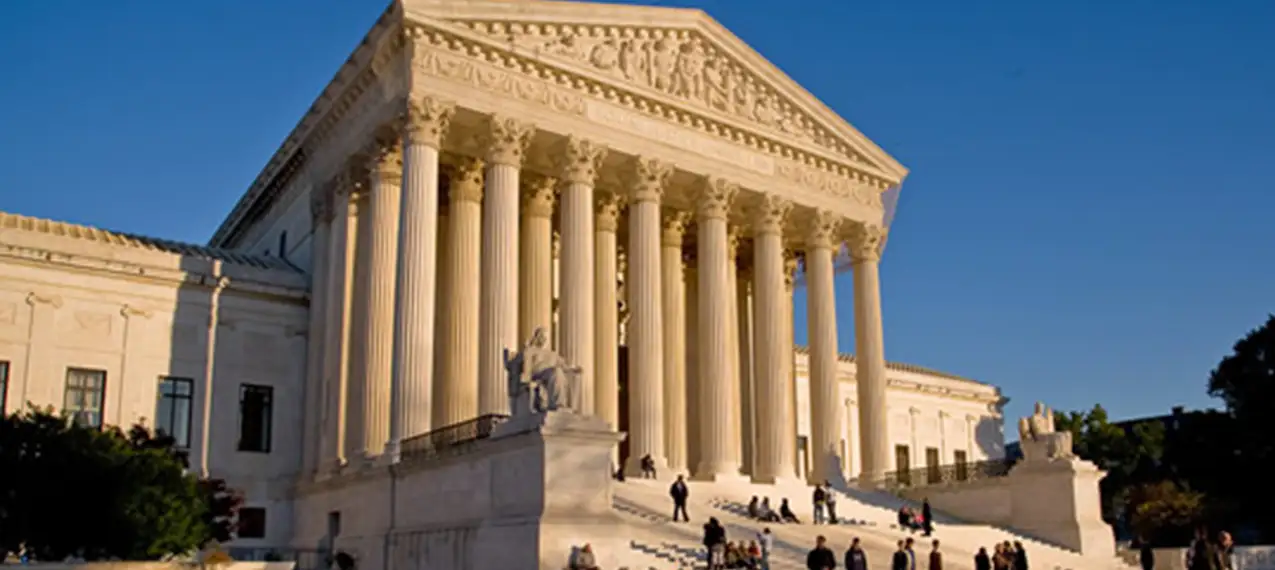
This week the Supreme Court will hear oral arguments in three cases. The first is Harrington v. Purdue Pharma L.P., scheduled for Monday, December 4. The Court will determine whether the Bankruptcy Code permits courts to approve bankruptcy plans which prevent claims by non-debtors against non-debtor third parties when the claimant has not consented to such an arrangement. In other words, whether bankruptcy plans can prevent individuals from suing non-debtor shareholders in the bankrupt organization without the consent of those seeking to bring lawsuits. In 2019, Purdue Pharma and the Sackler family, formerly on the Board of Directors, faced a number of lawsuits totaling trillions of dollars for the development and marketing of the painkiller OxyContin. That year Purdue Pharma went bankrupt, though the Sacklers did not. As part of the bankruptcy arrangement for Purdue, all suits by third parties against the Sacklers were enjoined, which many who had filed lawsuits disagreed with. A bankruptcy court upheld this decision, before it was overturned by a district court, and then upheld again by the Second Circuit Court of Appeals.
On Tuesday, the Court will hear Moore v. United States, a crucially important case for tax law going forward. The Court will consider whether Congress has the authority to tax a shareholder’s unrealized gains as income without apportionment. (The Constitution requires direct taxes to be apportioned by population, similar to congressional seats.) The Moores owned a minority stake of 11% in a Controlled Foreign Corporation (CFC), KisanKraft, though they received no dividends or any other form of income from the CFC. Per the Mandatory Repatriation Tax, passed in 2017, they were assessed taxes on their share of the CFC’s undistributed profits and earnings, which they argued was unconstitutional. According to the Moores, because they had received no income, the tax was not covered by the Sixteenth Amendment and was therefore an unapportioned direct tax. The federal trial court disagreed and dismissed the suit and the Ninth Circuit Court of Appeals upheld the dismissal. Landmark filed an amicus brief on behalf of the Moores because the Ninth Circuit is ignoring the plain meaning of the word “income” to avoid the procedural hurdles of the Apportionment Clause.
Finally, on Wednesday, the Court will hear Muldrow v. City of Saint Louis, Missouri. The Court will decide whether Title VII of the Civil Rights Act protects against discriminatory transfer decisions in the absence of a court ruling which states that a transfer order caused significant disadvantage. Officer Muldrow was a successful member of the St. Louis police department who was deputized by the FBI. She was then transferred to a different district, thus losing out on significant benefits and additional pay. Muldrow alleged the transfer was sex-based discrimination under Title VII, though the District and Eighth Circuit Courts ruled against her.
Landmark will continue to monitor these and other upcoming cases of interest.
SUPPORT LANDMARK LEGAL FOUNDATION
We are truly facing existential threats to our individual rights and liberties, the Constitution, and our national character. If unchallenged, this assault on our very way of life will ruin our great nation. With your financial and moral support, Landmark is not going to let that happen without a fight. Will you join us?
JOIN OUR MAILING LIST
Never miss an update from Landmark Legal Foundation as we continue the fight to preserve America’s principles and defend the Constitution from the radical left.
Landmark will NEVER share your contact information and we will not flood your inbox.





